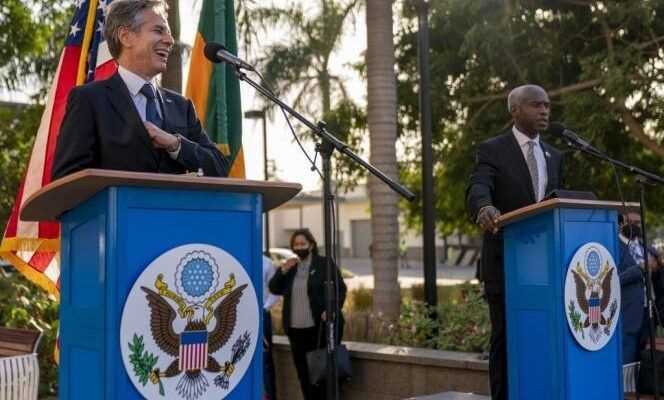To contain Chinese expansion, the United States and the European Union (EU) are launching alternatives to the “new silk roads”. Called “Global Gateway”, the European program, unveiled on 1er December, will mobilize 300 billion euros over six years in the fields of digital technology, health, transport, climate, energy and education.
But it is above all its operating principles that have been put forward by the President of the European Commission. Ursula von der Leyen insisted on the “High level of transparency, good governance and quality”, while promising a “Approach guided by democracy and its values” as well as “Fair and favorable conditions, in order to limit the risk of over-indebtedness”. So many arguments which echo the criticisms addressed to the “new Silk Roads” (Belt and Road Initiative, BRI), without ever naming them, namely the opacity of contracts, projects with limited industrial impact, elite corruption and the debt trap.
Since 2013, the Belt and Road Initiative has funded between $ 1,000 billion and $ 1,300 billion (between € 886 billion and € 1,152 billion) of infrastructure projects, mainly through loans. The level of debt is so high in some countries that it reinforces their dependence on Beijing. Richard Moore, the head of the British intelligence services, was also concerned about a “Data trap”. “If you allow a country to have access to sensitive data about your company, you no longer have control over this data, and this reduces your sovereignty”, he explained in an interview with the BBC at the end of November.
“We want to create links, not dependencies “
Brussels, which described the Asian giant as “Systemic rival”, clearly wants to offer an alternative to the Belt and Road Initiative, summarized by this formula of Mme von der Leyen: “We want to create links, not dependencies. “ A scratch that has not escaped Beijing. “The EU’s initial intention for this project is to confront China rather than providing real support to developing countries “, could we read in the edition dated 1er December of the Chinese Nationalist Daily Global Times.
While it finances one of the largest development banks in the world – the European Investment Bank – and its assistance in this area reached 414 billion euros between 2013 and 2018, mainly in the form of grants, the EU wants to make Global Gateway an instrument of its diplomacy to counter Beijing’s influence. “Connectivity has long-term implications for the EU’s economic, development and security interests, and for promoting its values around the world”, wrote the European Council in a report published in July.
You have 47.58% of this article to read. The rest is for subscribers only.
